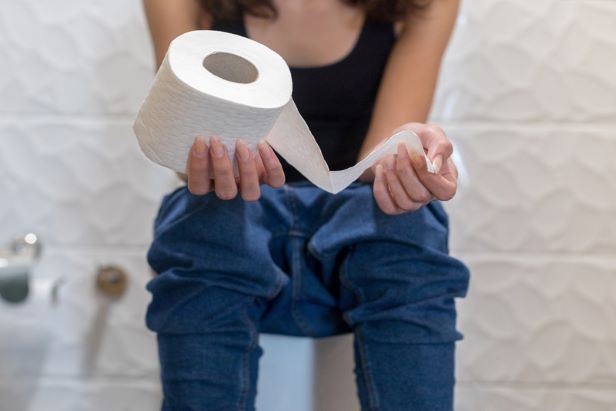Nordic Swan Ecolabel’s new tissue paper criteria raise the bar for the industry
The criteria for Nordic Swan Ecolabelled tissue paper were renewed with climate at the forefront. The limits for energy consumption and greenhouse emissions have been tightened, and no fossil oil or coal is allowed. Since toilet paper or other tissue products are used every day by just about everyone, even small choices make a difference.

Nordic consumers use almost 20 kilograms of tissue products per person every year. The number is among the highest in the world, even though paper is used a bit more sparingly in the Nordics than, for example, North America.
Many tissue products are of course basic everyday needs, and it’s not easy to reduce consumption by all that much. This is why it’s important to make production more sustainable.
On store shelves, environmentally better choices have long been easy to spot by looking for the Nordic Swan Ecolabel. Tissue paper with the label has been on the market since the 90s.
However, a roll of Nordic Swan Ecolabelled toilet paper sold today is not the same as it was decades ago. As technology develops, the criteria are updated as well. The new version is the label’s sixth.
– The new criteria challenge paper producers to develop. The requirements are ambitious, but achievable by industry pioneers. That’s always the starting point for the Nordic Swan’s criteria development, says Niina Tanskanen, a Nordic environmental expert from Ecolabelling Finland.
The new criteria follow the principles familiar from previous versions, but the level of requirements has been raised across the board.
Energy-efficient and lower-carbon production
For the production of toilet paper alone, hundreds of millions of trees and millions of tons of oil are used annually worldwide.
In Nordic Swan Ecolabelled paper products, all fiber raw materials must be traceable and at least 70 percent obtained from certified forests or be recycled. In the new criteria the limits for both energy use and greenhouse gas emissions have been tightened too, this time by at least 20 percent from the previous version. The use of fossil oil and coal as regular energy sources is now prohibited.
This guides producers to reduce their energy consumption and to favor more sustainable, renewable energy sources.
– Even though the emissions of, for example, one roll of toilet paper are small, these products are used a lot both in homes and in public facilities. The clear limit values and precise requirements of the Nordic Swan ensure that consumers and procurers can reliably choose an option with lower emissions, Tanskanen says.
Focus on circular economy with new limits for forever chemicals
A lot of attention is also paid to chemical safety, as tissue products are often in contact with the skin or food. Production chemicals can also burden the environment.
– The Nordic Swan Ecolabel works to promote a non-toxic circular economy. This means that requirements on resource efficiency and recycled materials must not jeopardize product safety or quality. Following this principle, new requirements are set on tissue papers made from recycled fibers and used in contact with food. There’s a limit on the content of total organic fluorine and bisphenols A, F and S, for example, Tanskanen says.
Total fluorine content is used as an indicator for the much talked about “forever chemicals” known as PFAS. These compounds don’t break down in the environment and can therefore be found in small quantities almost everywhere, even toilet paper. Bisphenols have been widely used in the production of plastics, may end up in paper products as contaminants and can act as endocrine disruptors. The Nordic Swan sets limits for both.
The requirements for product packaging have also been expanded in the new criteria. Easily recyclable packaging, clear sorting instructions and favoring recycled materials promote a more circular economy.
All this ensures that a Nordic Swan Ecolabelled product is among the best for the environment – throughout its life cycle, from raw materials to production and recycling.
Nordic Swan Ecolabelled tissue paper in a nutshell
- Energy and climate efficient manufacturing with reduced energy consumption and reduced emissions of greenhouse gases. Fossil oil or coal are not allowed in production.
- All virgin fibres must be traceable and come from controlled sources – and at least 70 % of the fibres must come from certified forests or be recycled.
- Limits for emissions to air and water during production.
- Strict requirements on the environmental and health properties of the chemicals used in production.